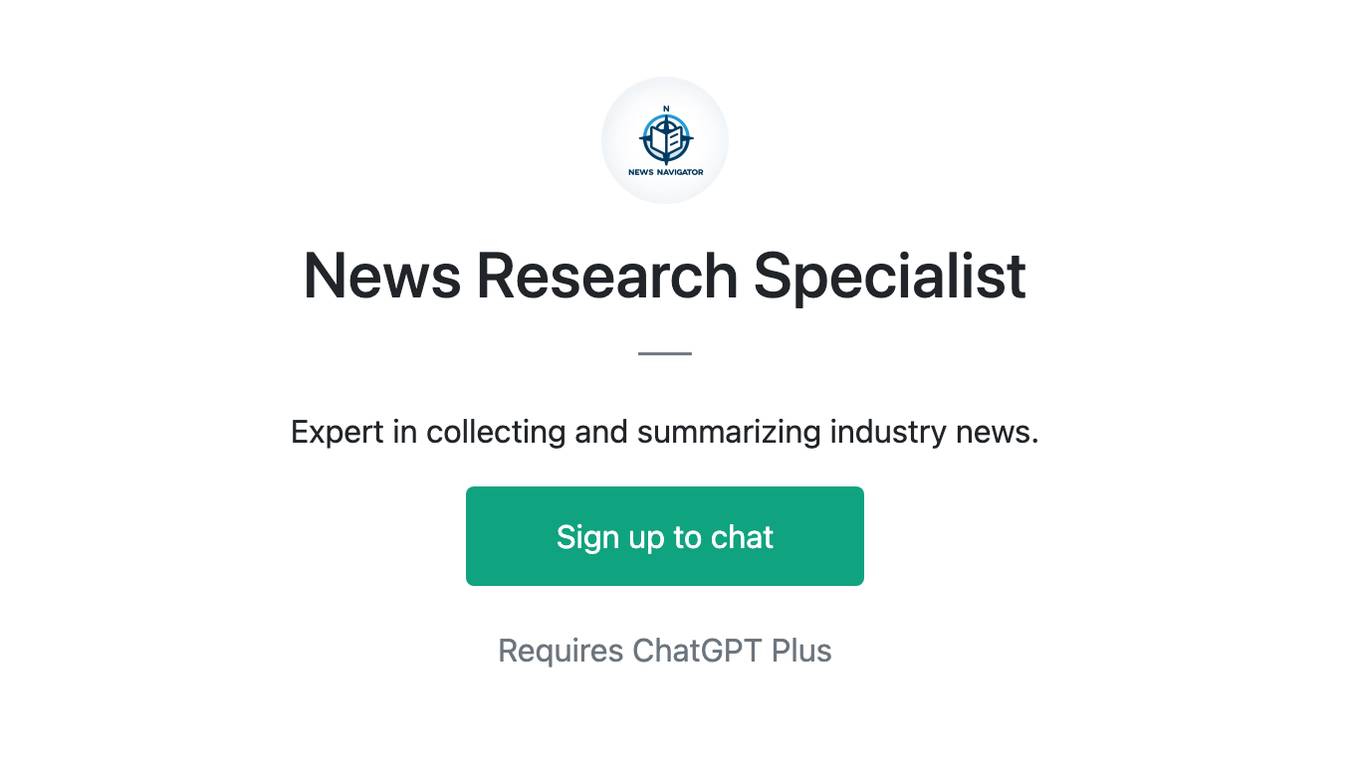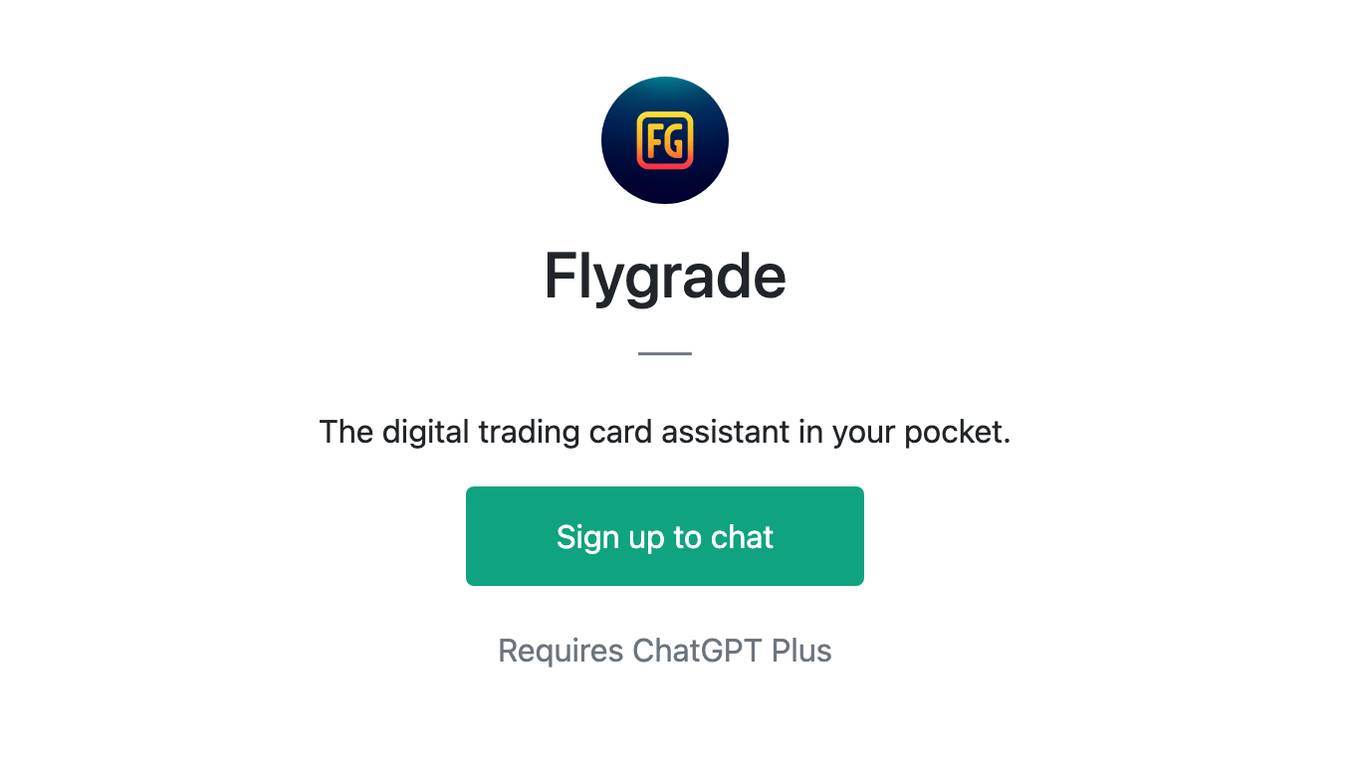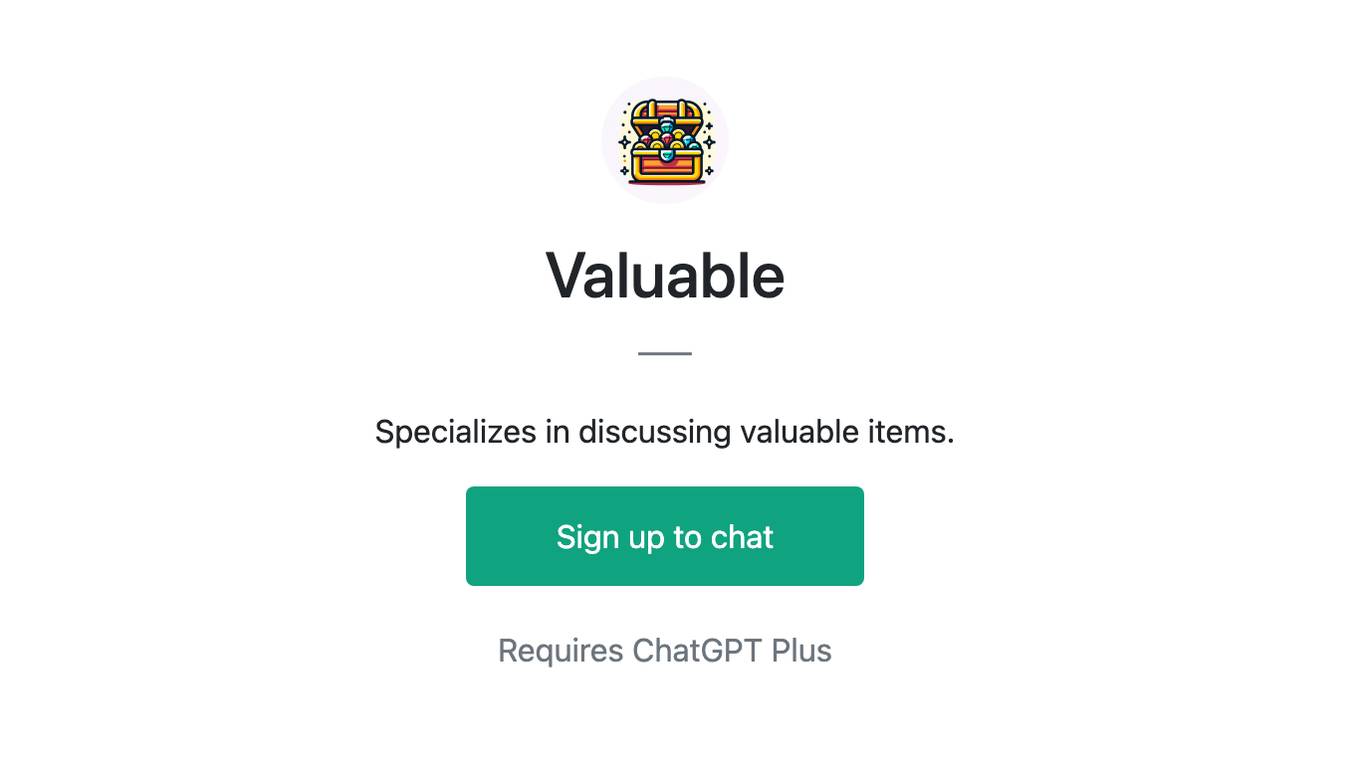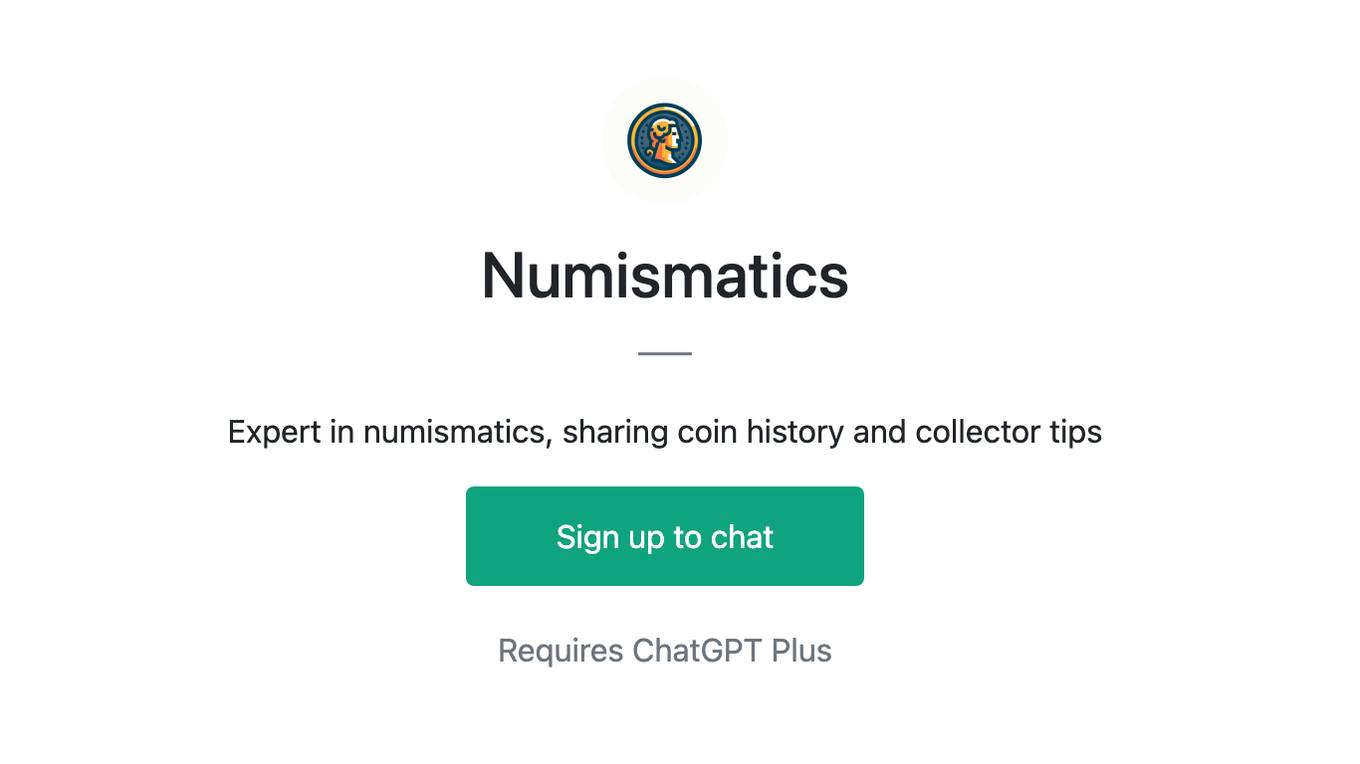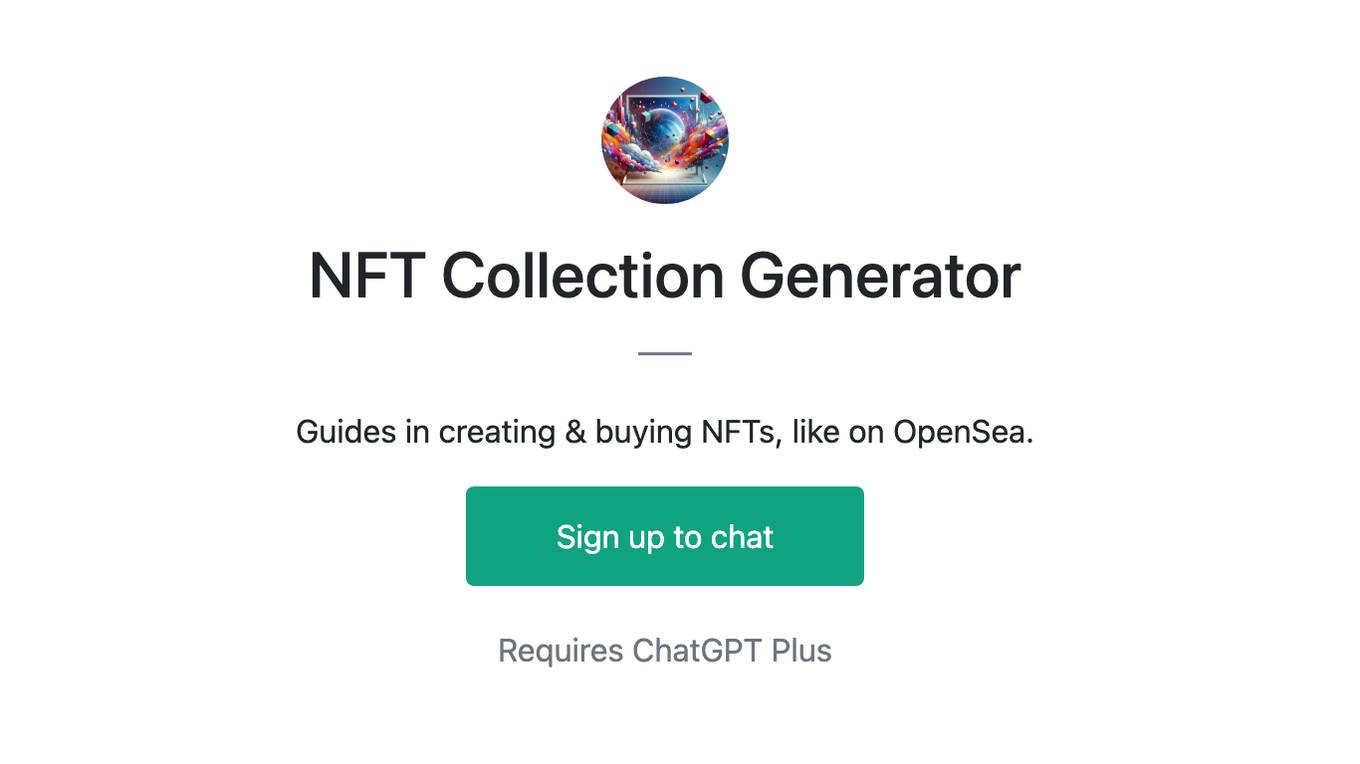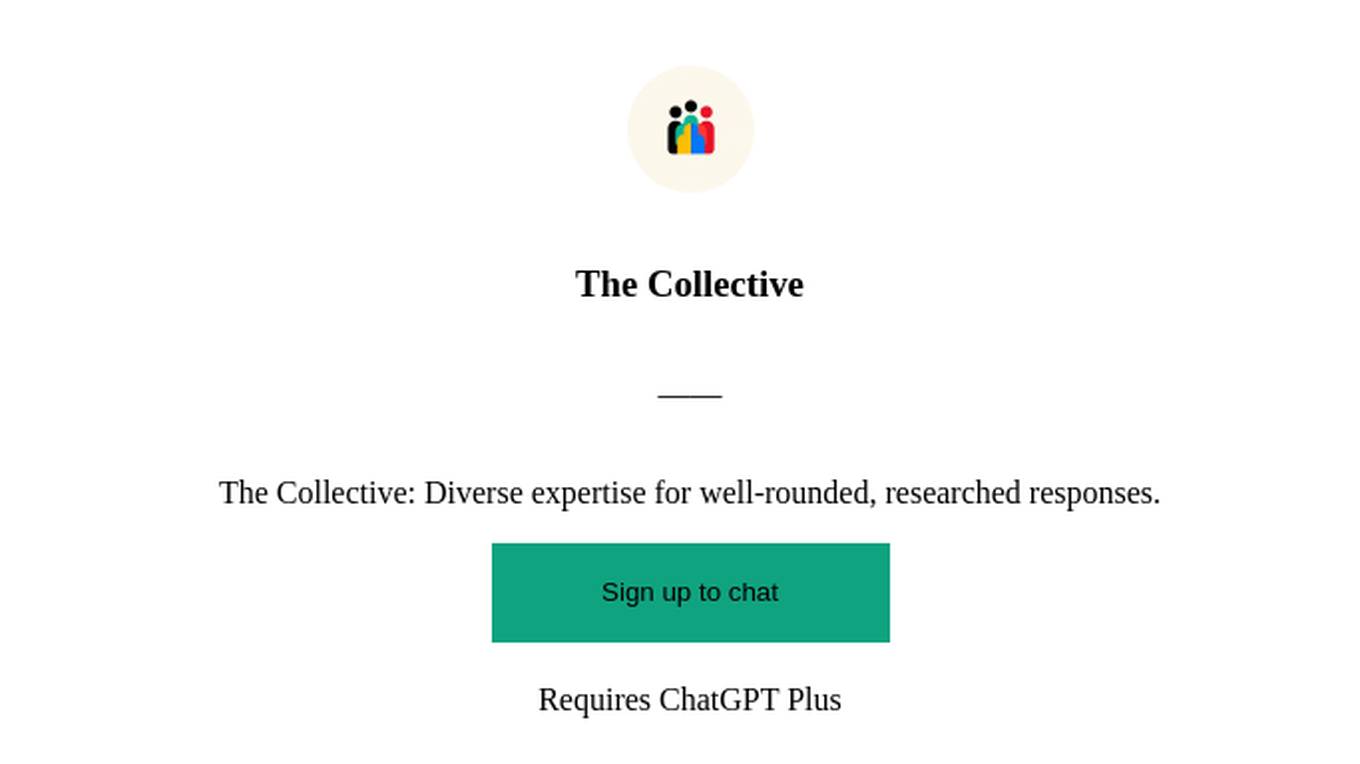Best AI tools for< Collecting Feedback >
20 - AI tool Sites
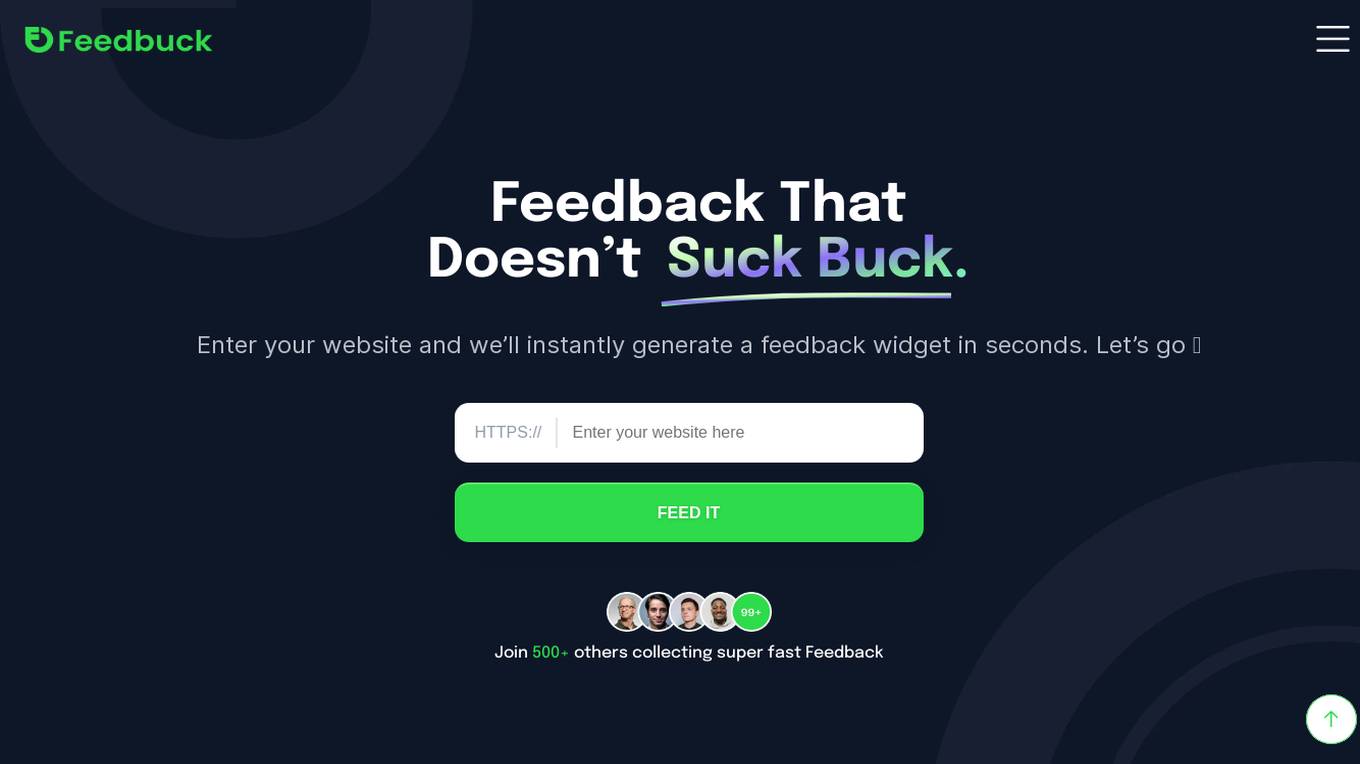
Feedbuck AI
Feedbuck AI is an AI-powered user feedback collection tool that helps businesses collect feedback from their users quickly and easily. It uses AI to automatically generate feedback questions based on your website and objectives, and it provides straightforward summaries with clear results. Feedbuck AI is easy to use and integrates with a variety of platforms, making it a great choice for businesses of all sizes.
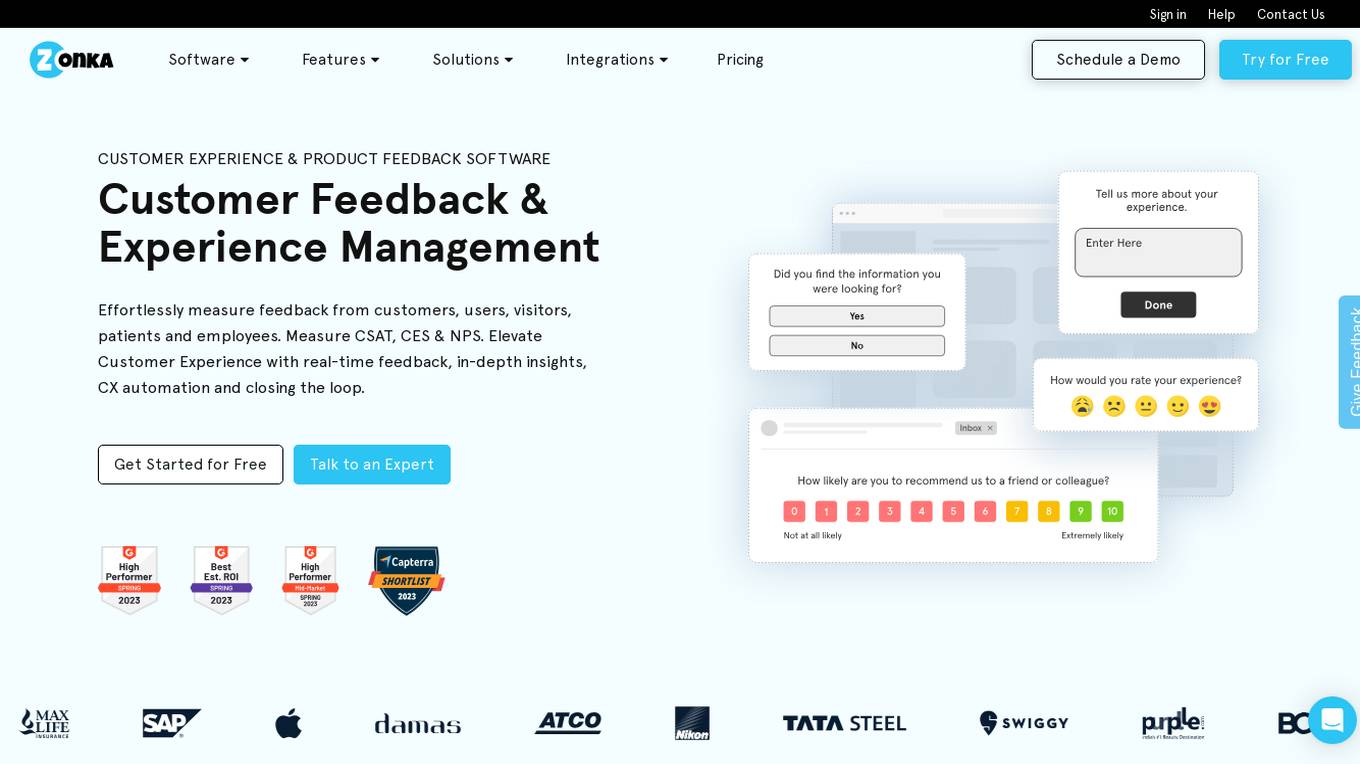
Zonka Feedback
Zonka Feedback is a powerful Customer Feedback and Survey Platform that offers User Segmentation for precise targeting, AI capabilities for smarter surveys, and a wide range of features to measure and improve Customer Experience. It provides solutions for various industries and use cases, integrates with popular tools, and offers in-depth reporting and analytics. Zonka Feedback is known for its modern-looking surveys, ease of use, and extensive integrations, making it a versatile tool for collecting feedback from customers, users, visitors, patients, and employees.
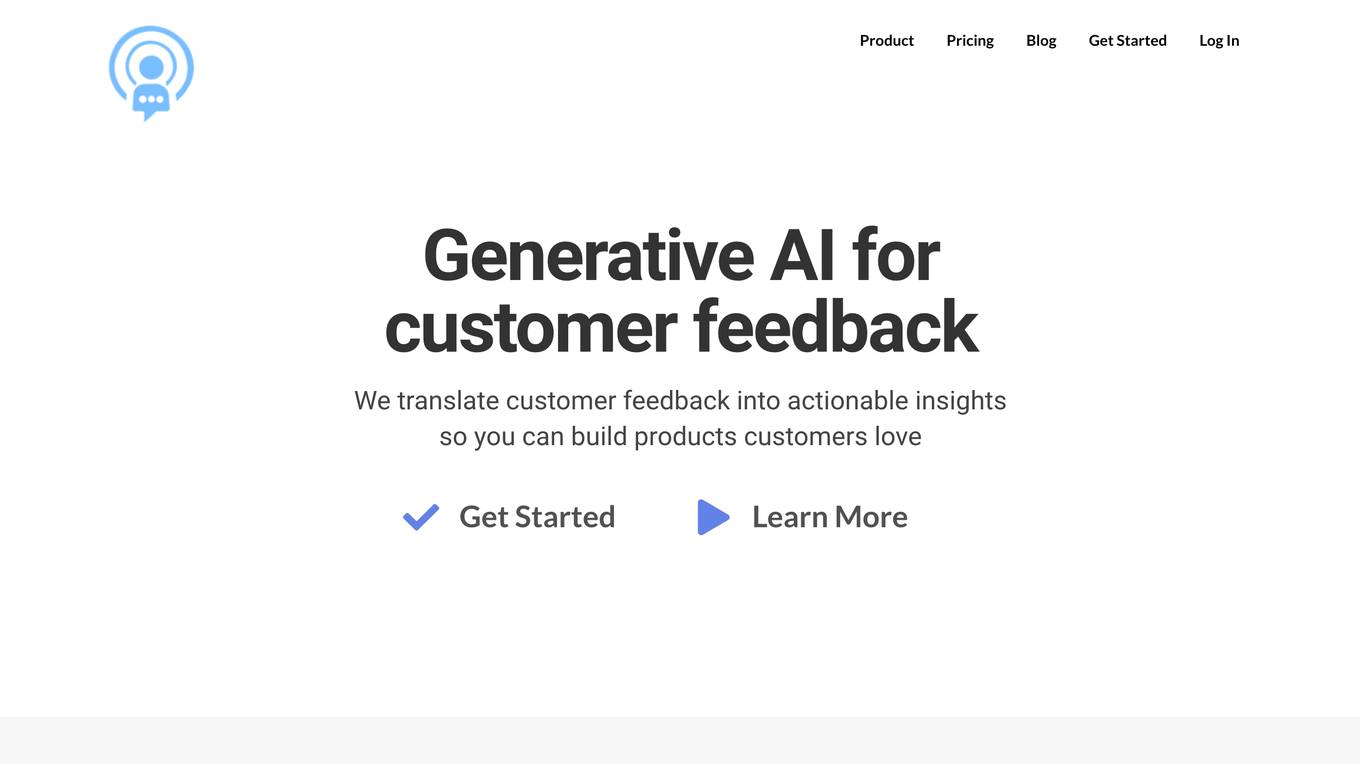
Rargus
Rargus is a generative AI tool that specializes in turning customer feedback into actionable insights for businesses. By collecting feedback from various channels and utilizing custom AI analysis, Rargus helps businesses understand customer needs and improve product development. The tool enables users to compile and analyze feedback efficiently, leading to data-driven decision-making and successful product launches. Rargus also offers solutions for consumer insights, product management, and product marketing, helping businesses enhance customer satisfaction and drive growth.
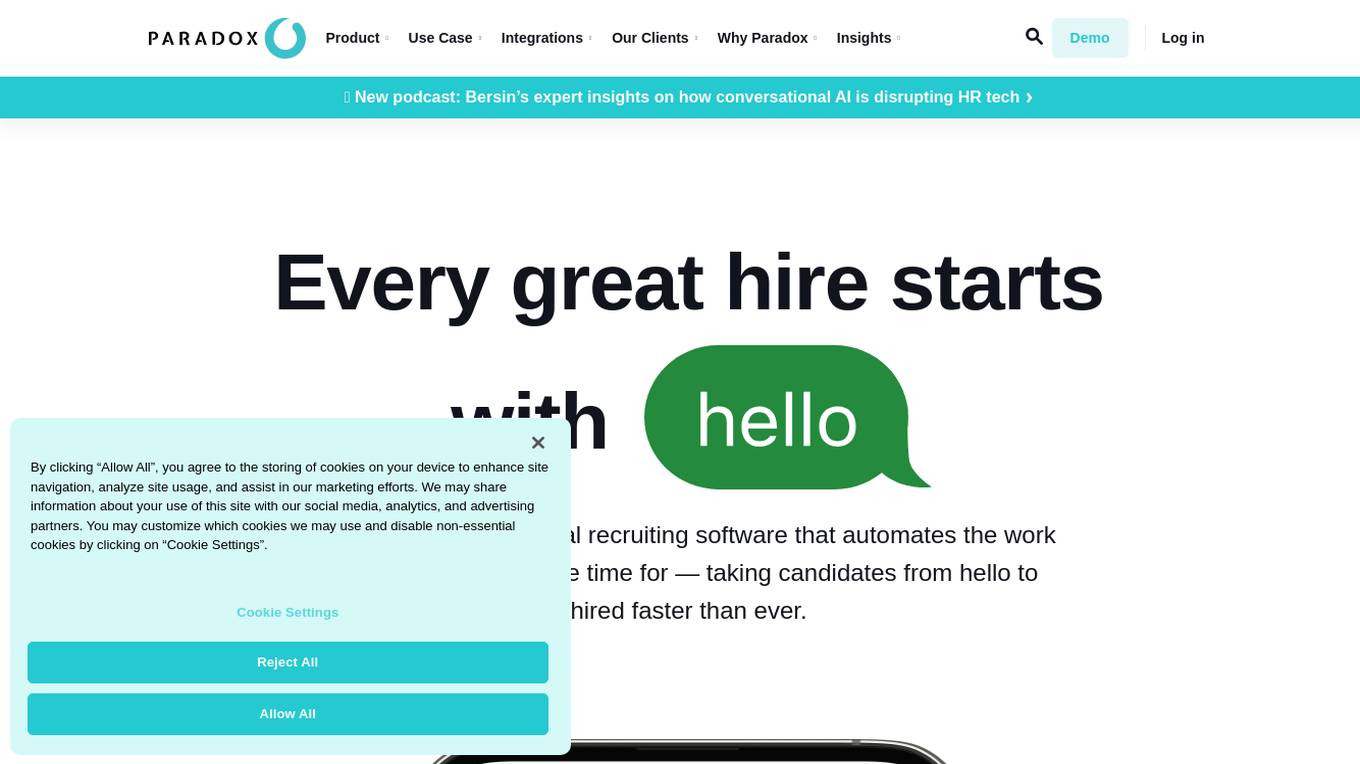
Paradox
Paradox is a conversational hiring software that automates repetitive tasks and improves the candidate experience. It offers a range of features such as conversational ATS, career sites, CX, capture, scheduling, events, and assessments. Paradox integrates with leading HCM systems like Workday, SAP SuccessFactors, and Indeed. It is used by various industries including retail, restaurant, healthcare, logistics, financial services, and hospitality.

YOMO
YOMO is an AI-powered platform designed to help product teams build products that boost revenue and reduce churn. It offers a suite of tools for collecting feedback, conducting research, collaborating, and organizing information. YOMO leverages AI to provide automated insights, prioritize feedback, and uncover user needs and desires. The platform aims to streamline product development processes and empower teams to make data-driven decisions.
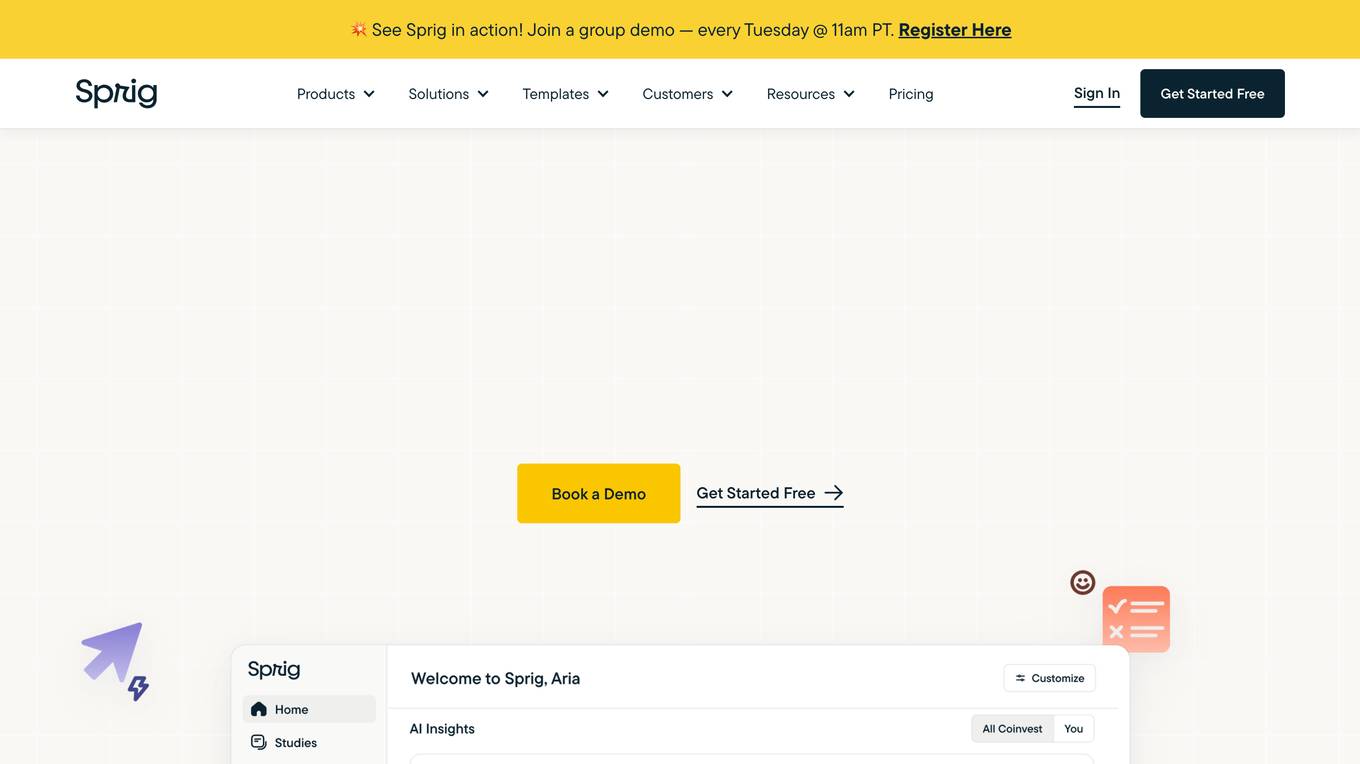
Sprig
Sprig is an all-in-one product experience platform that leverages AI technology to provide actionable insights and recommendations for optimizing user experiences. It offers features such as Replays for capturing user behavior, Heatmaps for visualizing interactions, Surveys for collecting feedback, AI Explorer for holistic AI insights, and AI Recommendations for generating product solutions. Sprig helps product managers, user researchers, customer experience teams, and engineers to continuously improve their products by understanding user behavior, identifying pain points, and enhancing conversion rates.

CourseFactory AI
CourseFactory AI is an online platform that leverages artificial intelligence to assist users in creating high-quality online courses efficiently. The platform offers a range of AI assistants to help with course creation, from generating ideas and organizing content to collecting feedback and continuously improving the course structure. CourseFactory AI aims to streamline the course creation process, save time, and enhance the learning experience for both creators and students.
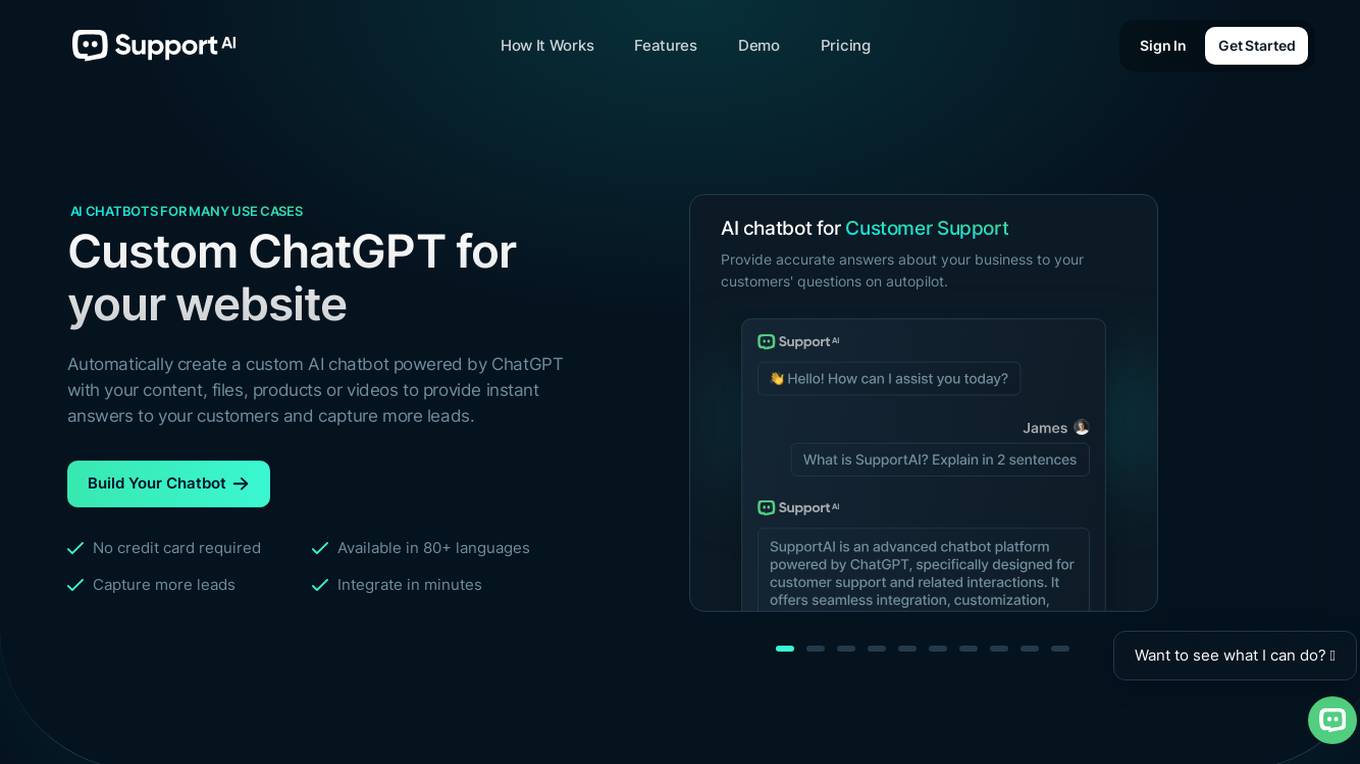
Support AI
Support AI is a custom AI chatbot application powered by ChatGPT that allows website owners to create personalized chatbots to provide instant answers to customers, capture leads, and enhance customer support. With Support AI, users can easily integrate AI chatbots on their websites, train them with specific content, and customize their behavior and responses. The application offers features such as capturing leads, providing accurate answers, handling bookings, collecting feedback, and offering product recommendations. Users can choose from different pricing plans based on their message volume and training content needs.
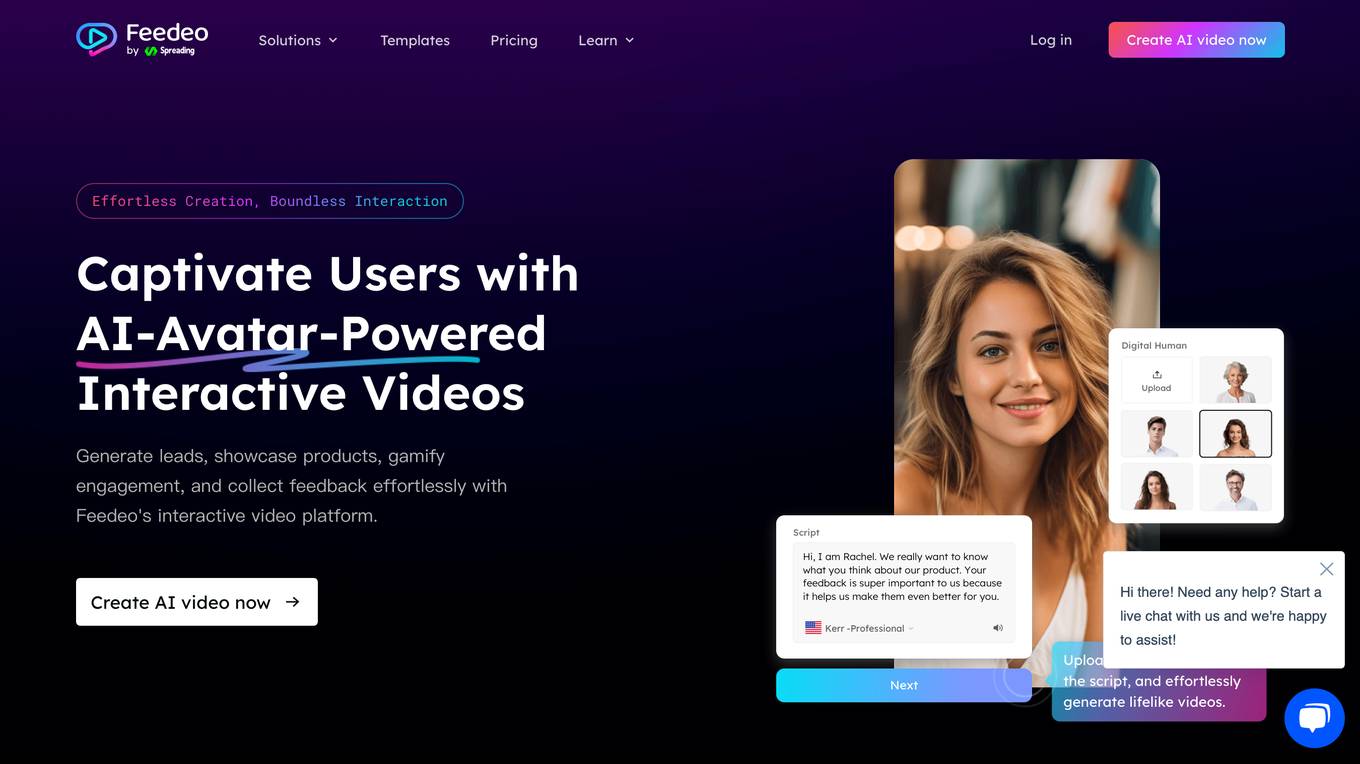
Feedeo
Feedeo is an AI Interactive Video Generator that allows users to create branded link pages with custom avatar videos. It helps in generating leads, showcasing products, gamifying engagement, and collecting feedback effortlessly through interactive videos. Users can easily create lifelike videos by uploading photos, filling out scripts, and sharing them widely to engage users. Feedeo offers rich components for interactive user feedback collection and enables users to create and publish interactive videos in 5 easy steps. It is a powerful solution for marketing, sales, recruitment, e-commerce, and education sectors, enhancing customer interaction, boosting conversion rates, and accelerating hiring processes.

ProProfs
ProProfs is a user research and customer feedback software that offers a comprehensive suite of tools for collecting real-time insights from website visitors and app users. With features like AI sentiment analysis, question branching, branding customization, advanced user targeting, and nudge for prototype, ProProfs empowers businesses to gather valuable feedback to enhance user experience, product functionality, and customer satisfaction. The application is designed to help businesses improve website leads, iOS & Android app feedback, NPS, customer experience management, ecommerce conversion, SaaS conversions, and marketing performance. ProProfs is known for its AI-powered analytics and reports, user-friendly interface, and exceptional customer support.
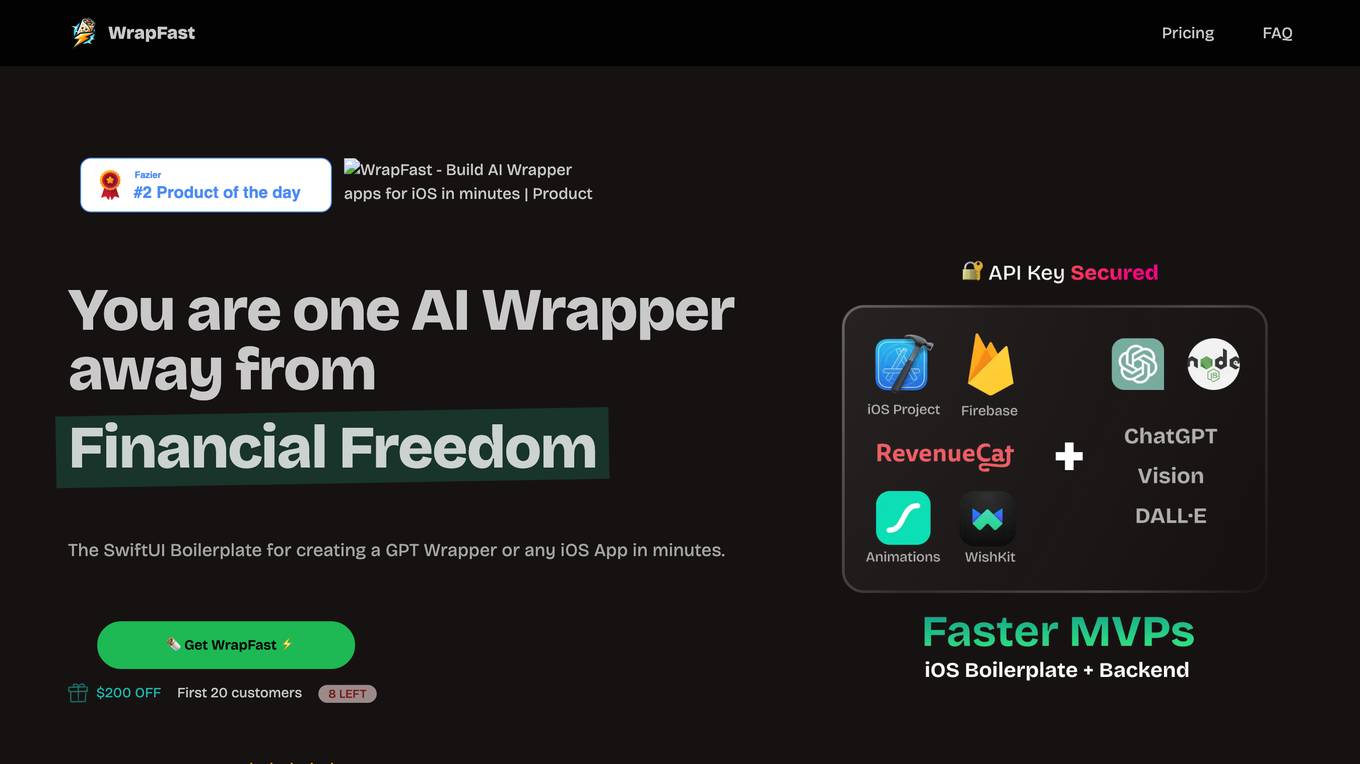
WrapFast
WrapFast is a SwiftUI boilerplate that helps developers create AI wrappers and iOS apps quickly and easily. It provides pre-written code for common tasks such as authentication, onboarding, in-app purchases, paywalls, securing API keys, cloud database, analytics, settings, and collecting user feedback. WrapFast is designed to save developers time and effort, allowing them to focus on building their core features. It is suitable for both experienced iOS developers and beginners who are new to the platform.
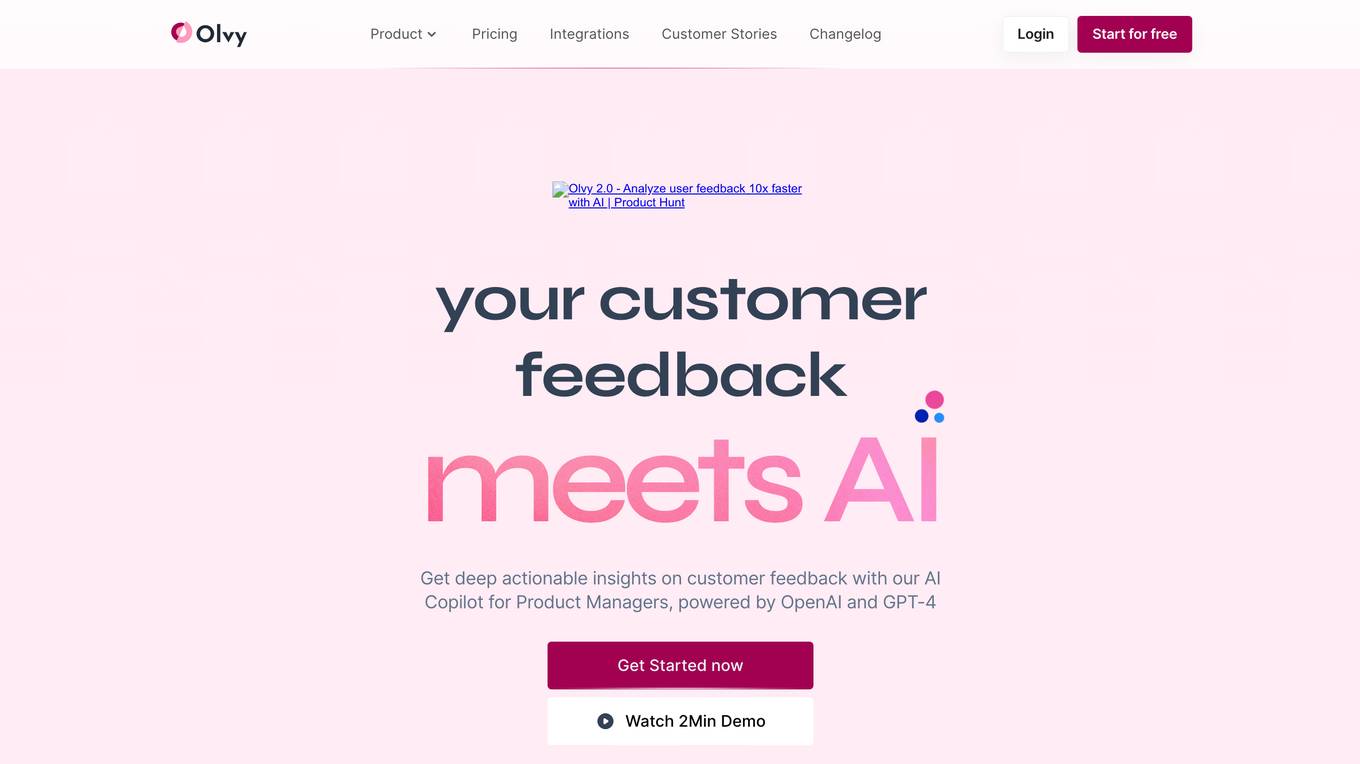
Olvy
Olvy is an AI-powered platform designed to help businesses manage user feedback efficiently. It offers a comprehensive solution for collecting and organizing feedback from various sources such as surveys, interviews, reviews, support tickets, and sales calls. By leveraging state-of-the-art AI technology, Olvy transforms raw feedback into actionable insights, enabling companies to make data-driven decisions and continuously improve their products. The platform streamlines feedback analysis, automates data processing, and provides valuable reports to enhance customer understanding and product development.
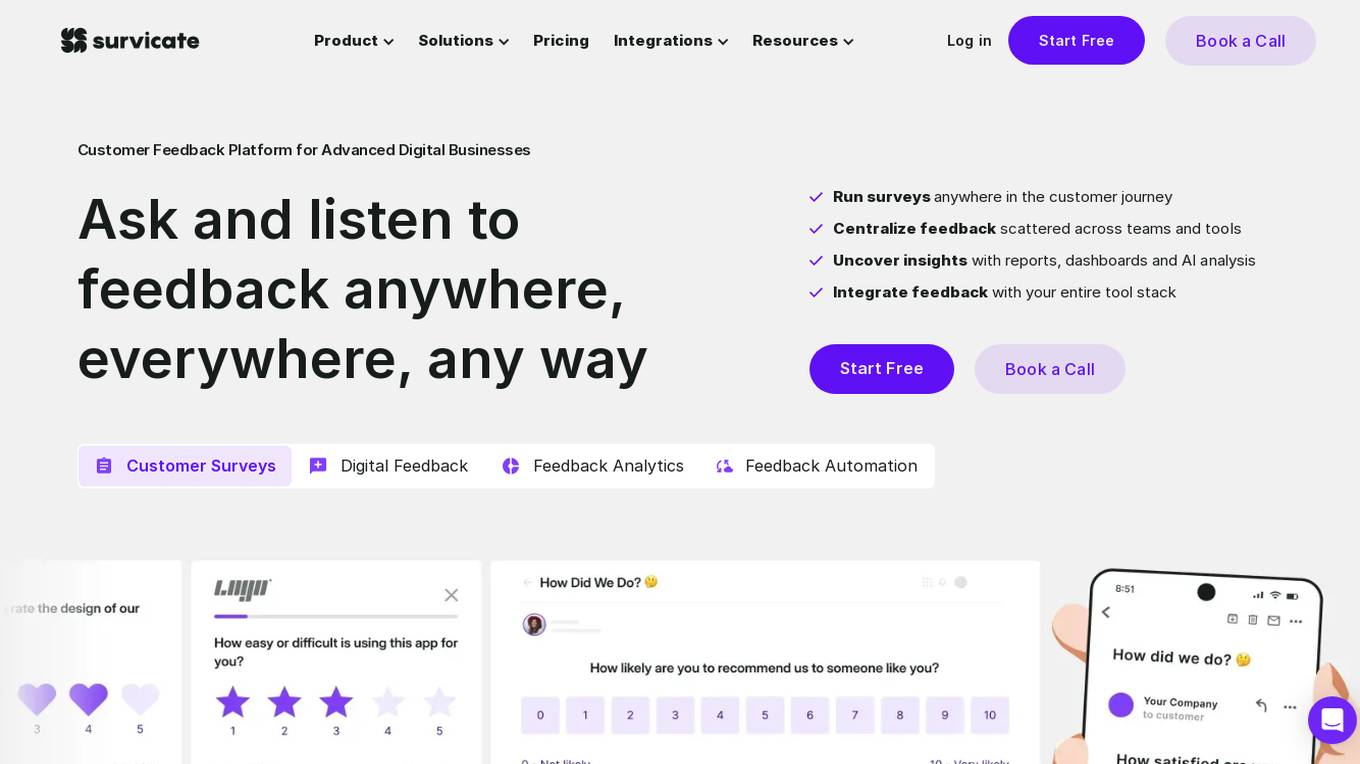
Survicate
Survicate is a customer feedback platform designed for advanced digital businesses. It offers effortless surveys, no-guesswork metrics, integrations with everyday tools, and over 150 survey templates. The platform allows users to create surveys in seconds, analyze results without drowning in data, and measure and track experiences at all user touchpoints. Survicate helps in collecting contextual product feedback, optimizing user experience, and understanding target audiences. It also enables users to evaluate customer journeys, measure customer satisfaction, and close feedback loops. With AI integration and insights hub, Survicate provides superior insights delivered fast for businesses to make informed decisions.
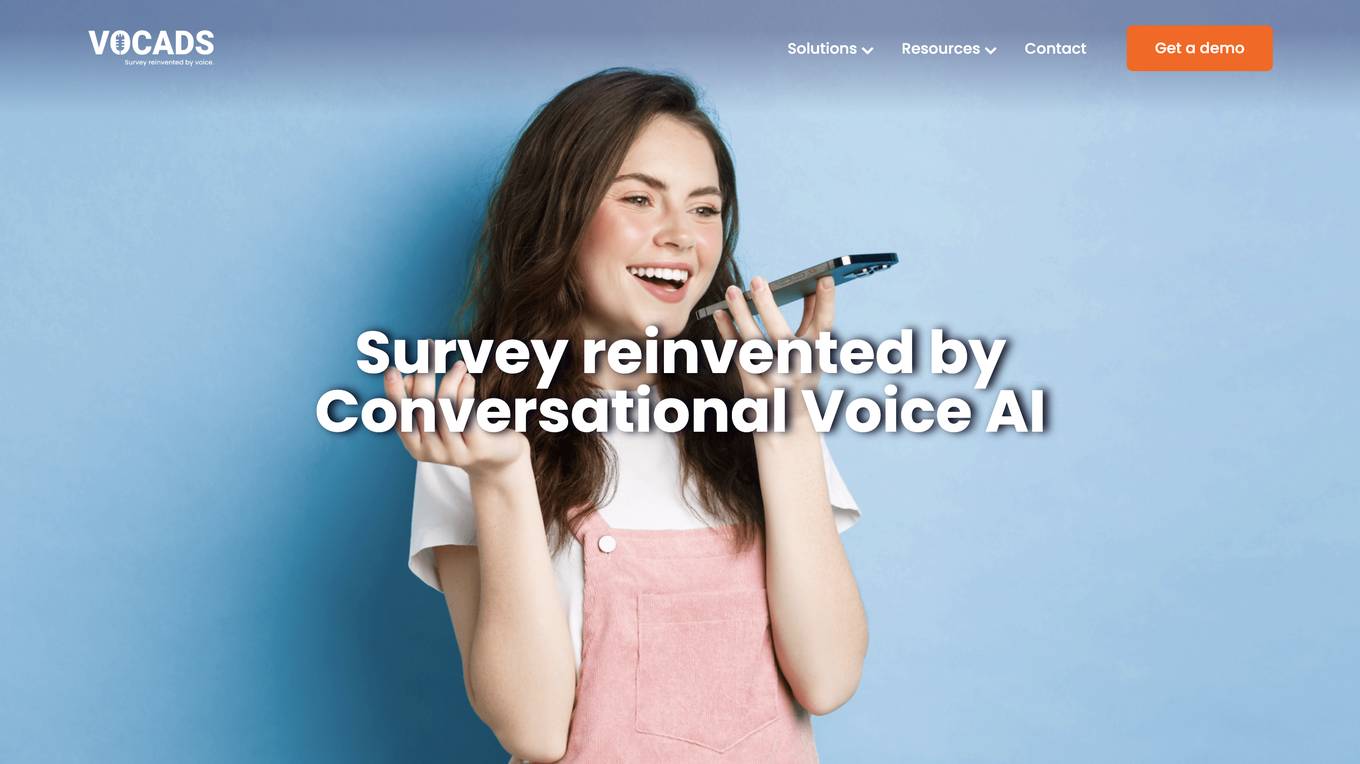
Vocads
Vocads is a conversational voice AI platform that reinvents the survey experience. It allows companies to collect richer data, improve their strategy, and retain clients through voice surveys. Vocads also provides employee voice surveys to engage employees, improve management, and upgrade company culture. The platform is easy to use with its no-code design, allowing users to create voice surveys from scratch instinctively and save templates for reuse. Vocads is GDPR compliant and offers data sovereignty, giving brands full control over their data.
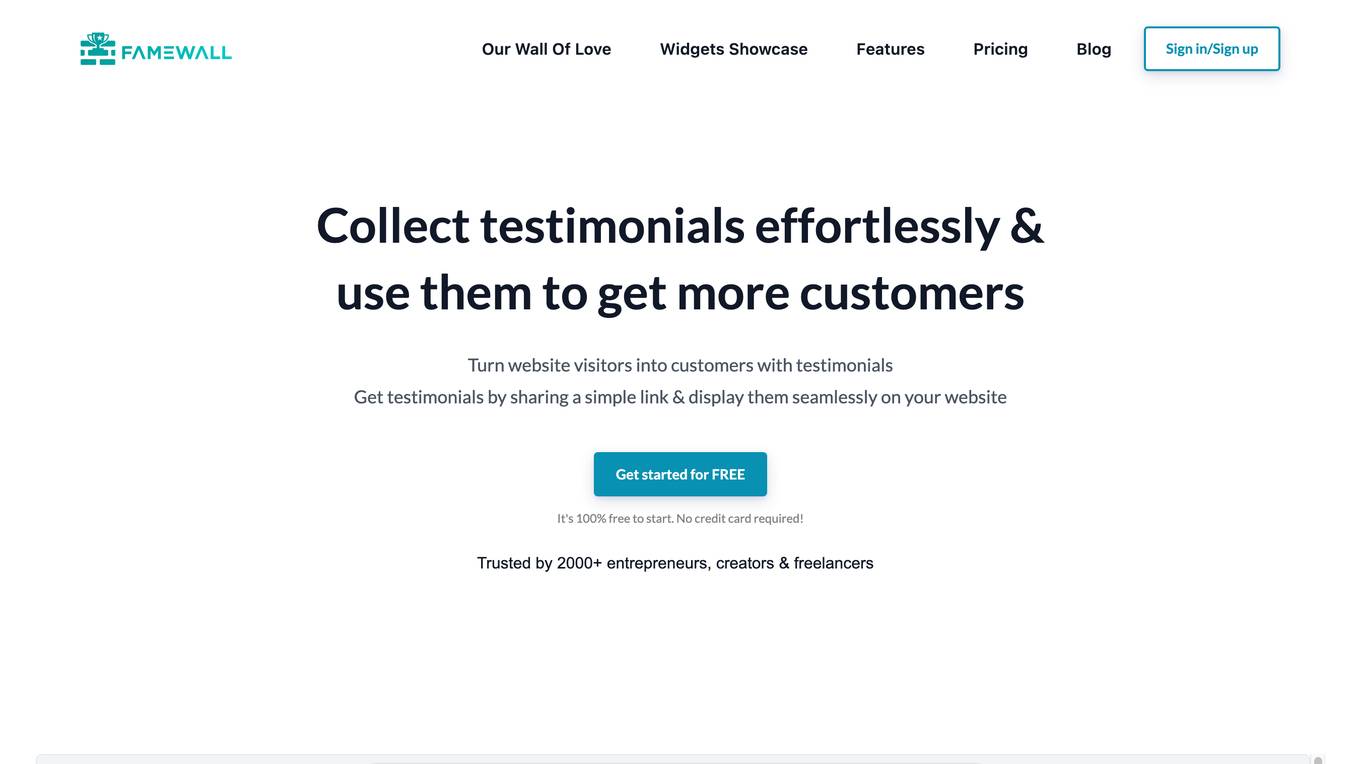
Famewall
Famewall is a testimonial collection tool that helps businesses gather and showcase customer testimonials on their websites. It allows users to easily collect testimonials through various methods such as sharing links, importing from social media platforms, and collecting video testimonials. With Famewall, businesses can manage testimonials in one place, personalize collection pages, and display testimonials using widgets and wall of fame pages. The tool aims to build trust, increase conversions, and enhance social proof for businesses of all sizes.
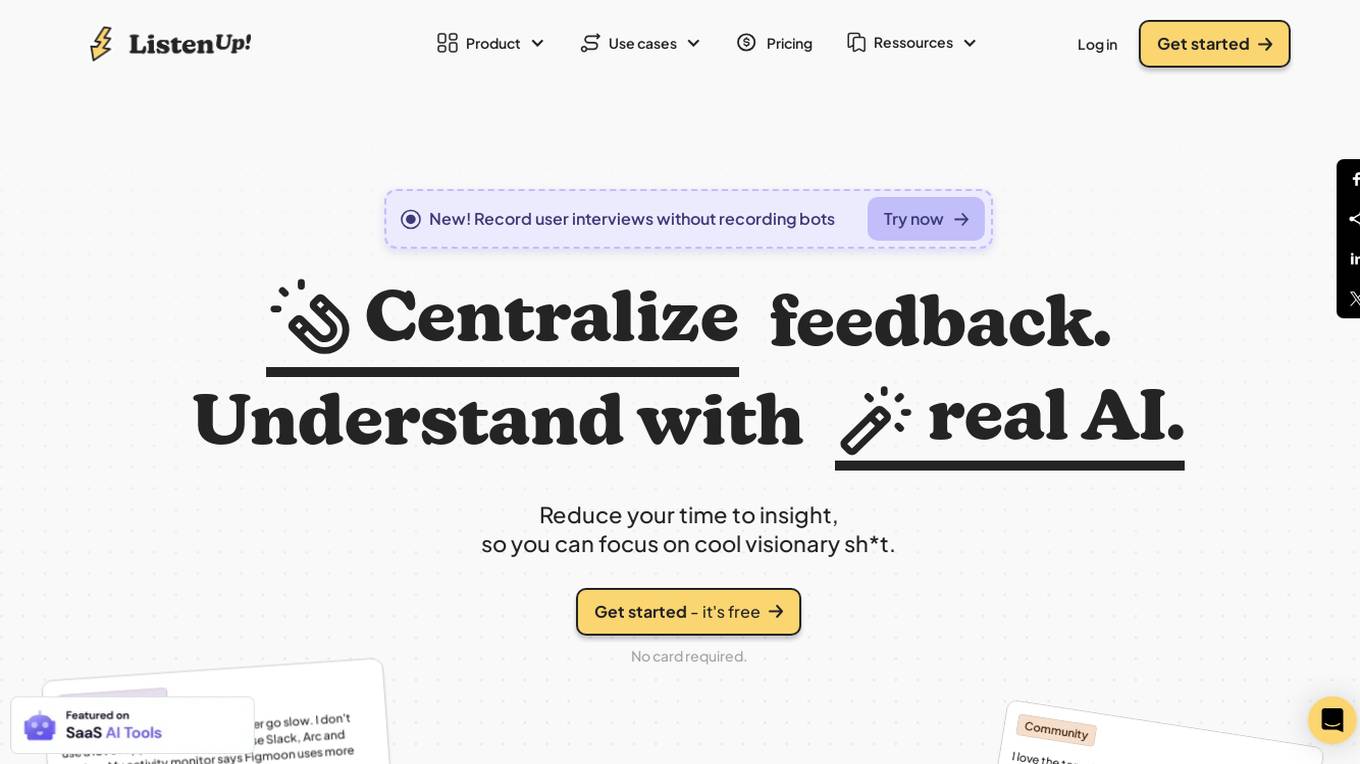
ListenUp!
ListenUp! is an AI-powered discovery tool designed for busy product teams to streamline the process of collecting and analyzing user feedback. The application automatically centralizes user feedback, orders it, and scales the process with AI technology. It helps product teams understand their users better, make informed decisions, and deliver more value efficiently. ListenUp! offers features such as automated feedback capture, real-time pattern suggestions, and transcribing user interviews with multiple speakers. The tool aims to enhance user understanding, improve product development, and boost team performance.
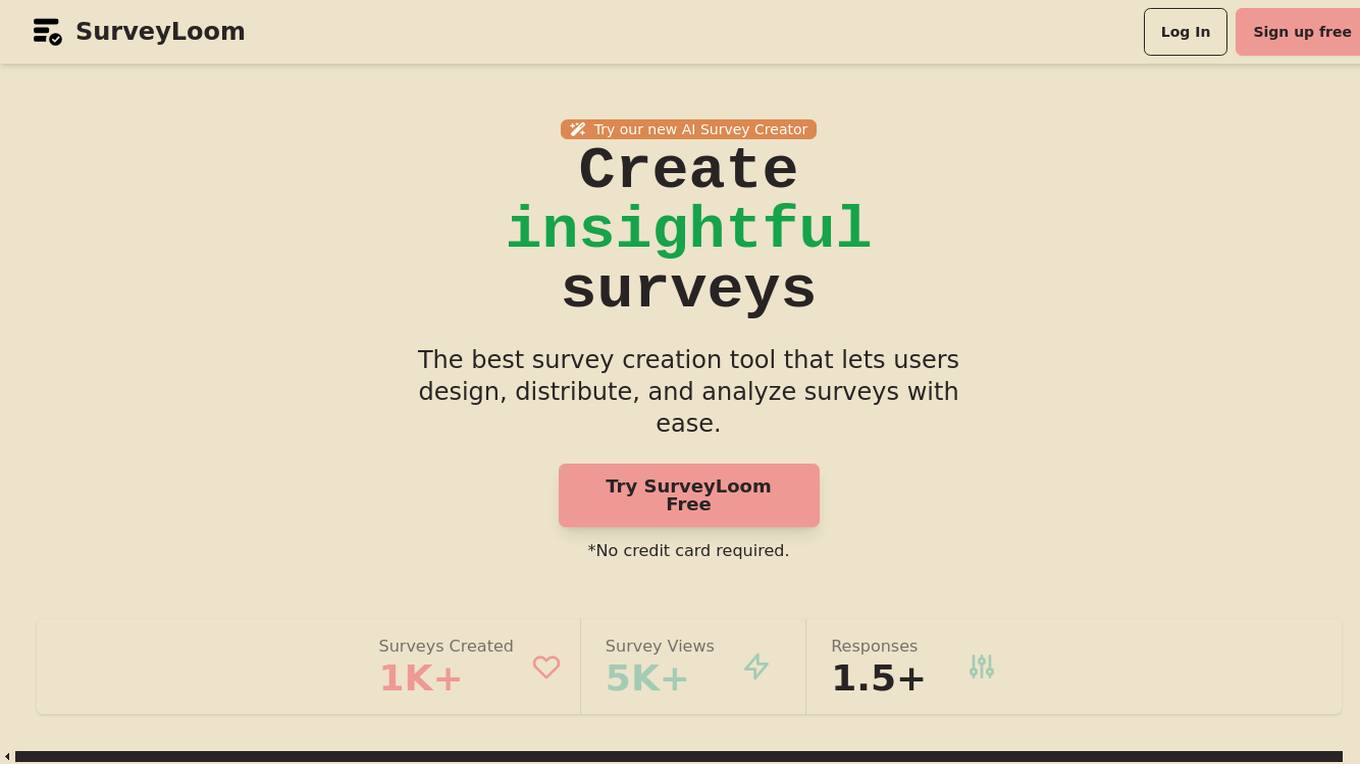
SurveyLoom
SurveyLoom is an AI-powered survey creation tool that simplifies the process of creating, distributing, and analyzing surveys. With intuitive survey building features, real-time analytics, customizable templates, and advanced AI insights, SurveyLoom offers a comprehensive solution for businesses and individuals to gather valuable feedback. The platform also provides team collaboration capabilities, dedicated support, and data security measures to ensure a seamless survey experience.

Vibeo.ai
Vibeo.ai is a powerful AI-driven tool designed to help businesses collect and utilize engaging video testimonials effortlessly. It addresses the common challenges faced by businesses, such as high visitor bounce rates, inefficient ad spend, and negative reviews. By leveraging AI technology, Vibeo.ai enables users to create campaigns, prepare questions, share links with customers, and get video testimonials edited seamlessly. The tool offers both free and pro plans with various features to cater to different business needs. With Vibeo.ai, businesses can boost their credibility, increase conversions, and maximize growth opportunities.
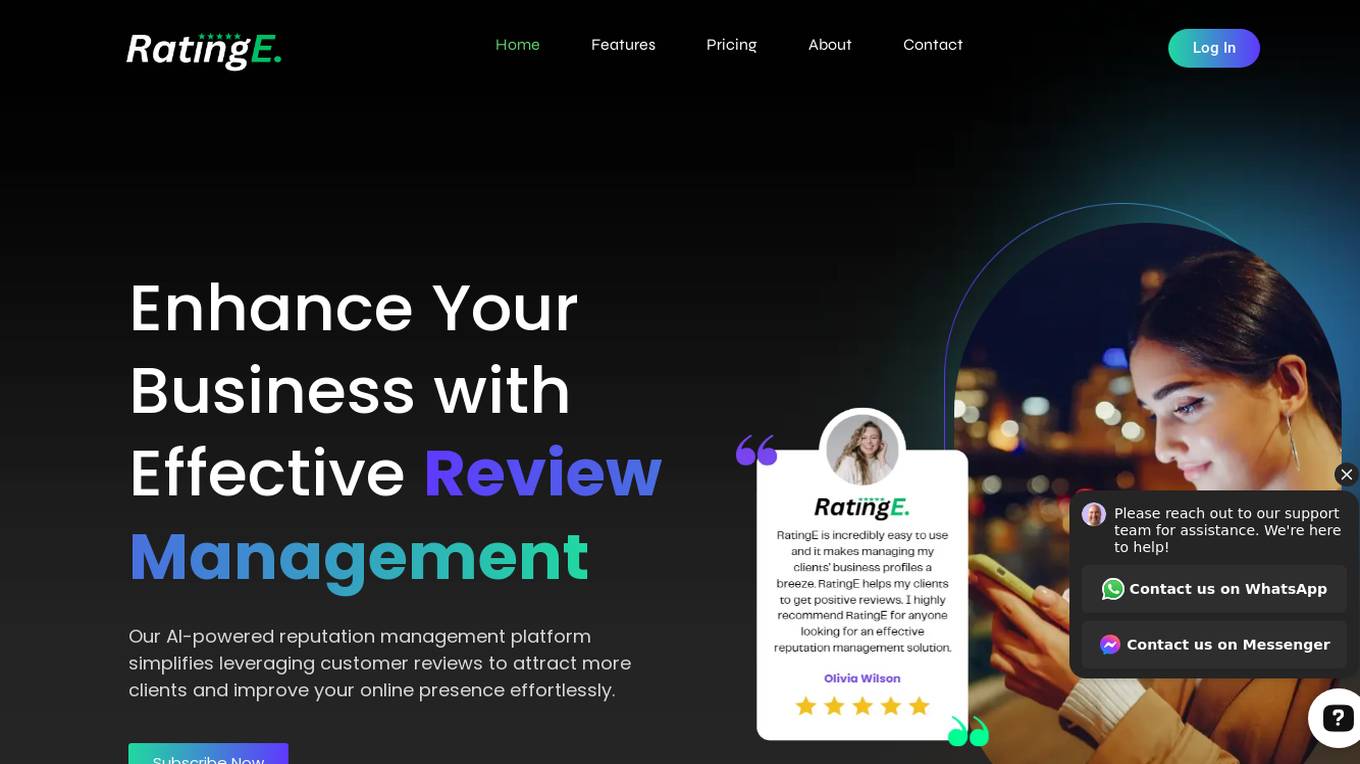
RatingE
RatingE is a revolutionary AI-powered review management platform that helps businesses enhance their online presence by automating the process of collecting, managing, and displaying customer reviews. The platform simplifies leveraging customer feedback to attract more clients and improve credibility effortlessly. With features like automated review requests, QR code requests, video testimonials, and effortless automation, RatingE aims to help businesses grow by generating positive reviews in the background. It offers benefits such as dashboard to manage all reviews, Google Business Profile optimization, video testimonials capabilities, social network sharing, and SMS/text message requests.
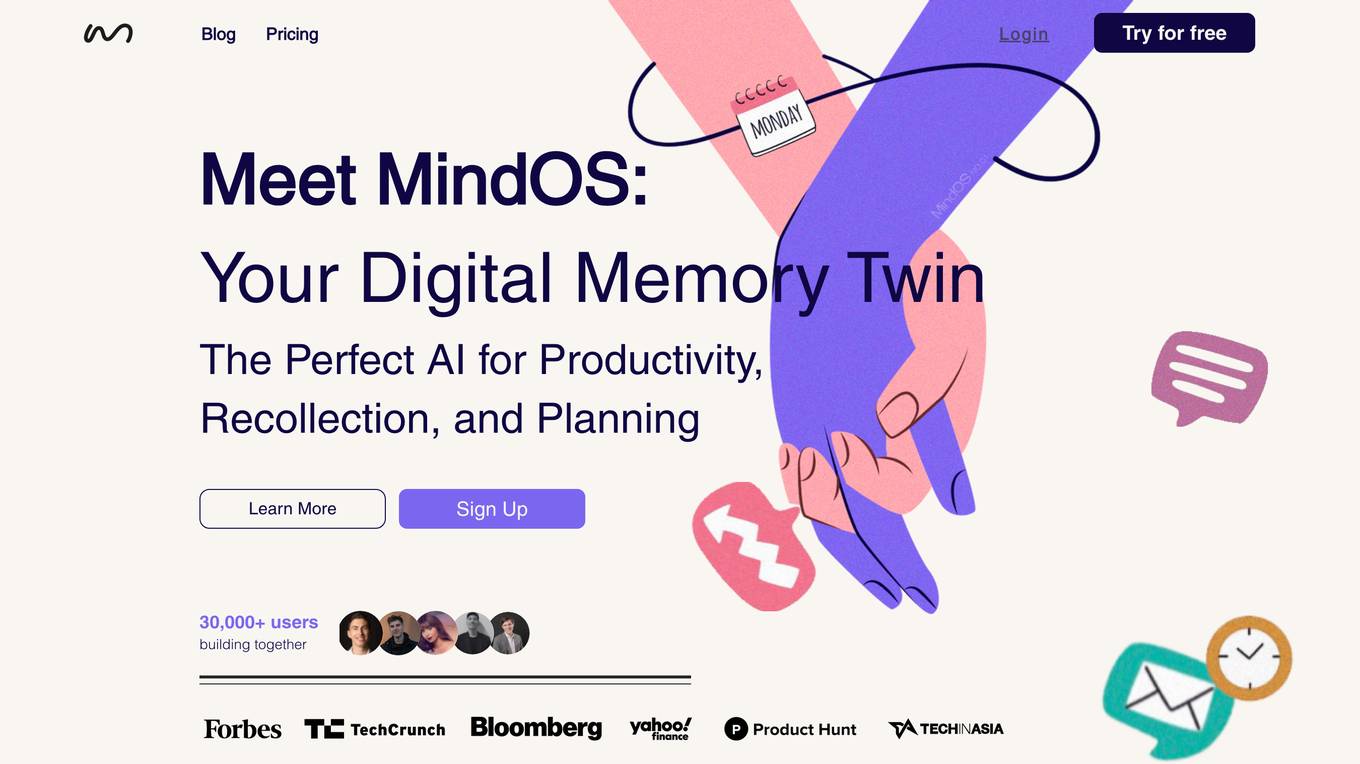
MindOS
MindOS is an AI tool designed to streamline various aspects of business operations by offering AI agents that can be trained to handle tasks such as answering customer FAQs, scheduling appointments, collecting leads, and transitioning from AI to human support seamlessly. The platform provides a user-friendly interface for incorporating data sources, developing personalized AI agents, tailoring them to brand preferences, and integrating them into websites. MindOS stands out for its powerful features, including special avatar customization, access to various data sources, easy feedback mechanisms, prompt and precise answers, voice input, whitelabeling, multilingual support, and the latest AI models.
0 - Open Source AI Tools
20 - OpenAI Gpts
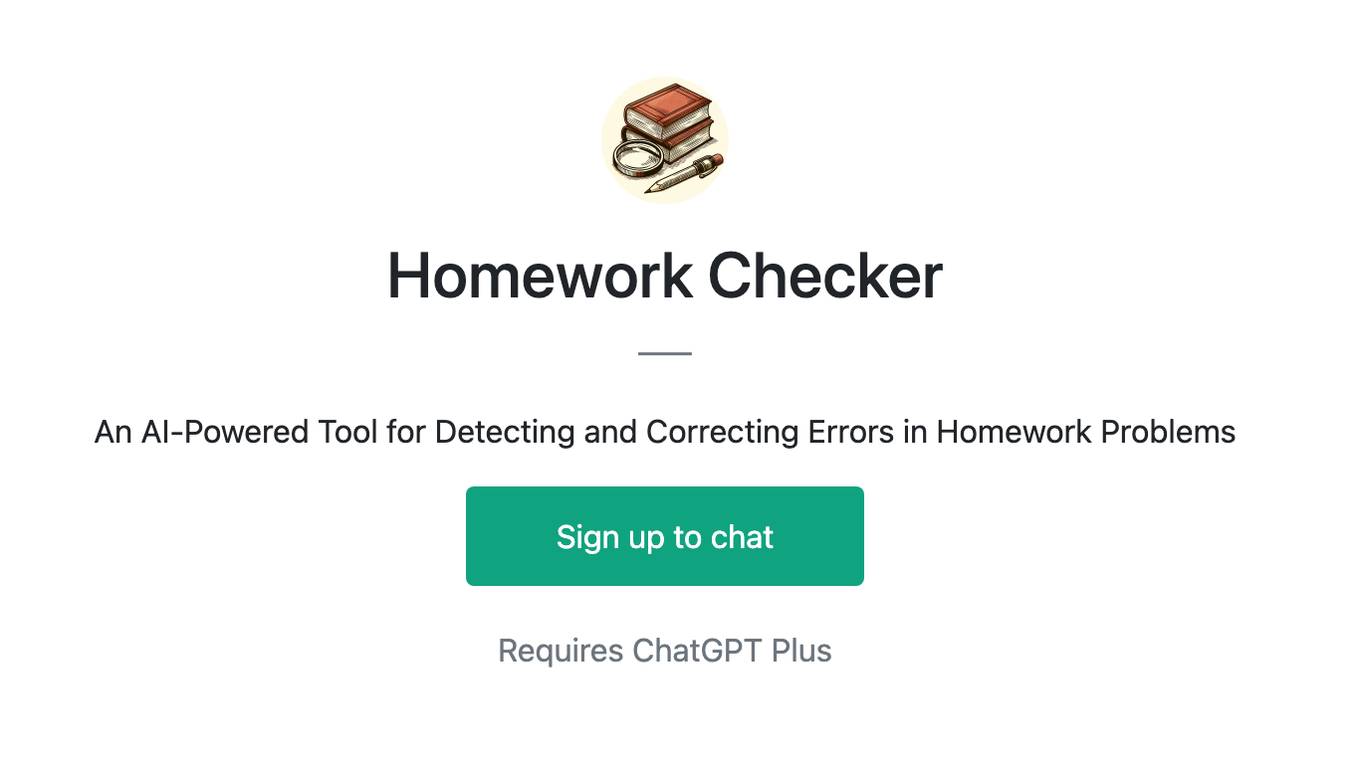
Homework Checker
An AI-Powered Tool for Detecting and Correcting Errors in Homework Problems
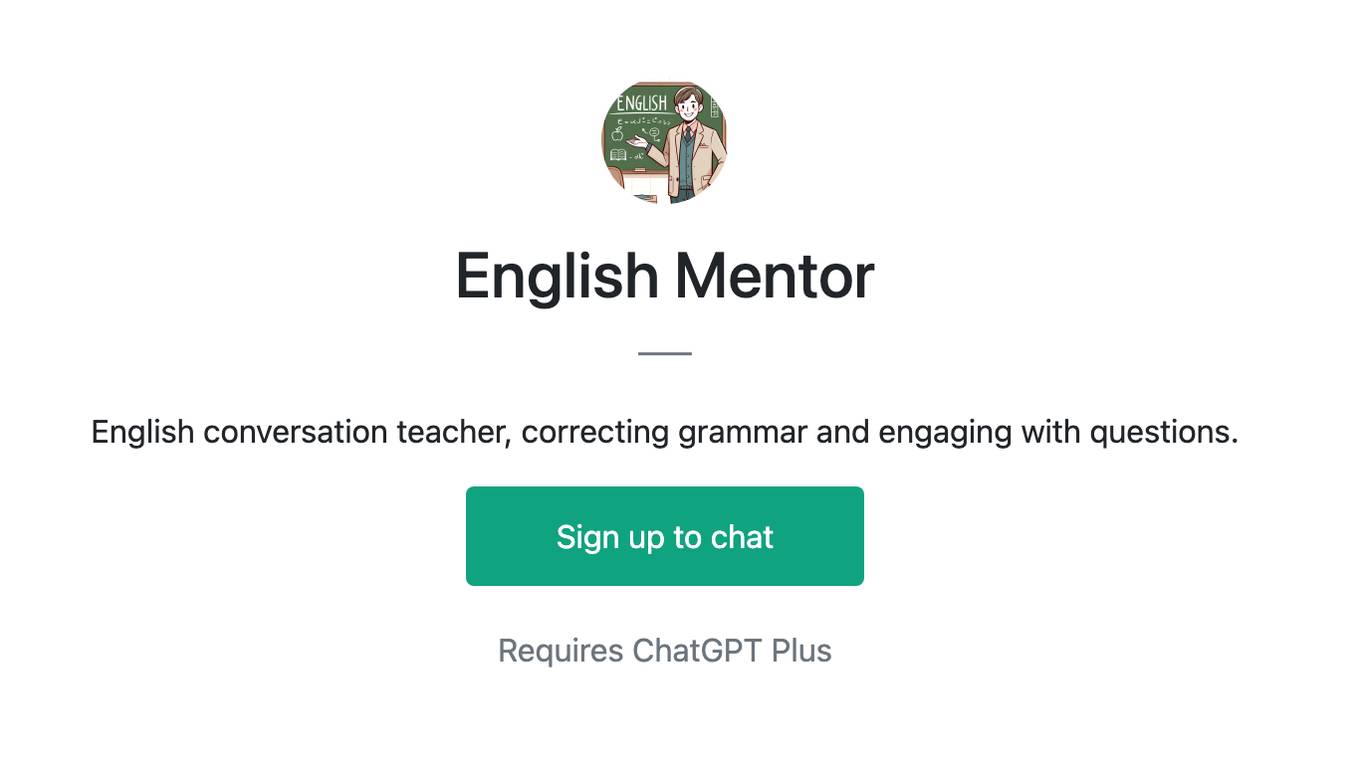
English Mentor
English conversation teacher, correcting grammar and engaging with questions.
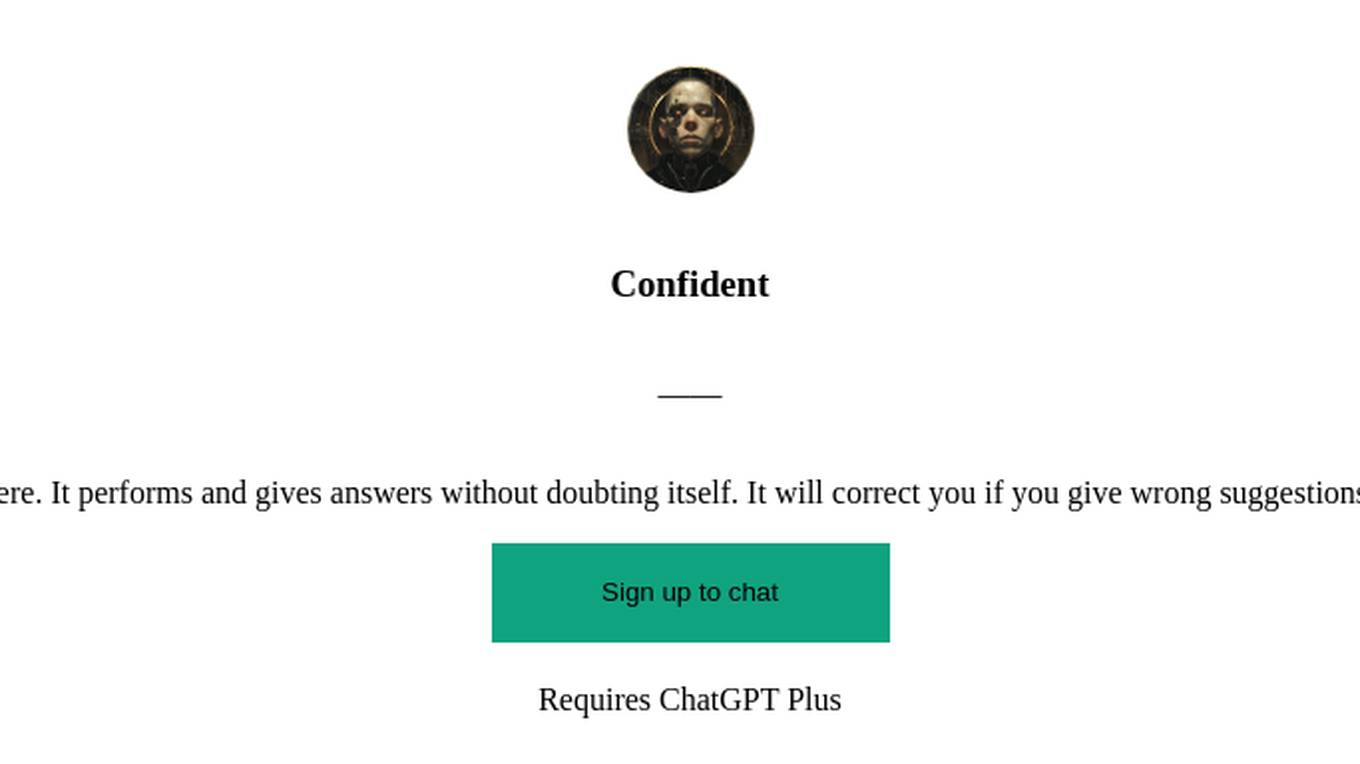
Confident
This GPT is the most confident GPT out there. It performs and gives answers without doubting itself. It will correct you if you give wrong suggestions. Bringing back the confidence to ChatGPT!

Poké Card Guru
Expert in Pokémon cards, offering advice on collecting, playing, and market trends.
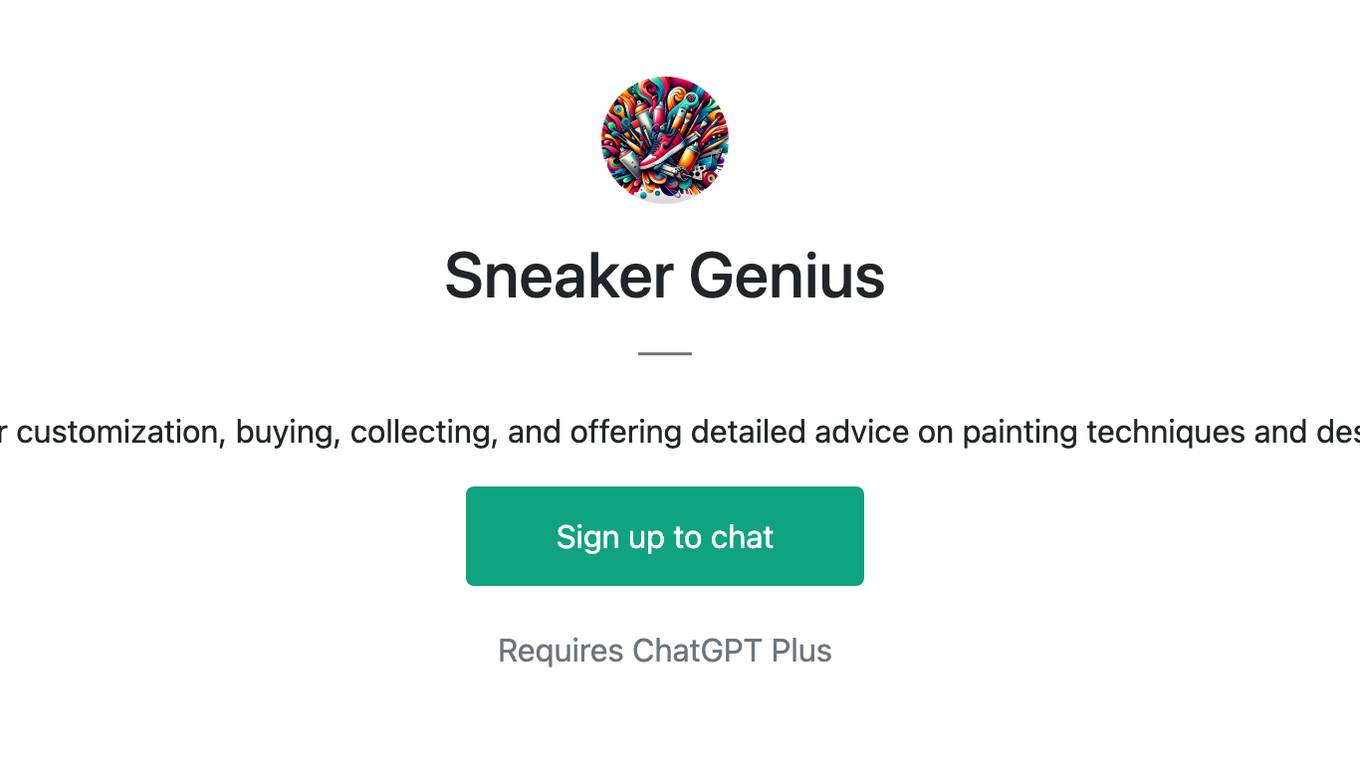
Sneaker Genius
Expert in sneaker customization, buying, collecting, and offering detailed advice on painting techniques and design inspiration
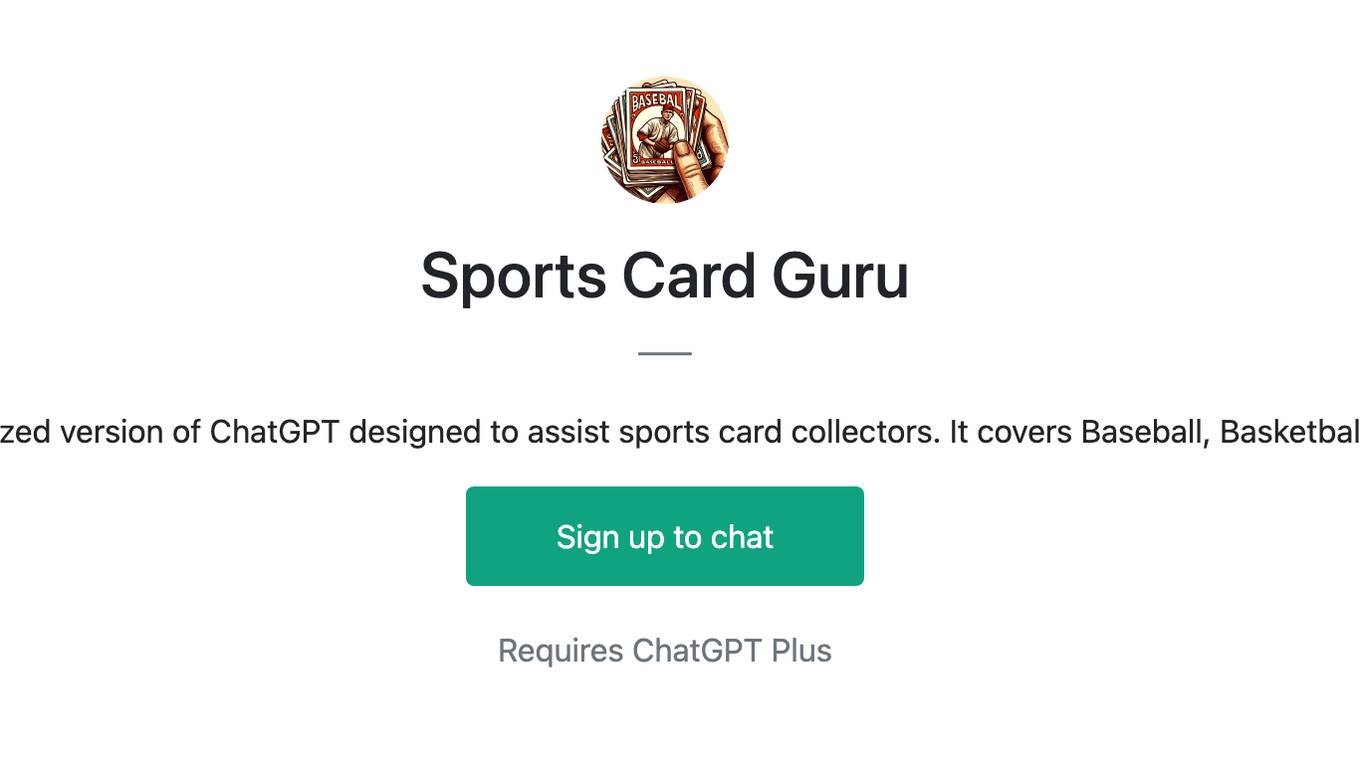
Sports Card Guru
Sports Card Guru is a specialized version of ChatGPT designed to assist sports card collectors. It covers Baseball, Basketball, Football and other sports.

Watch Whisperer
Ultimate watch aficionado, whatever you want to know about watch brands and movements.
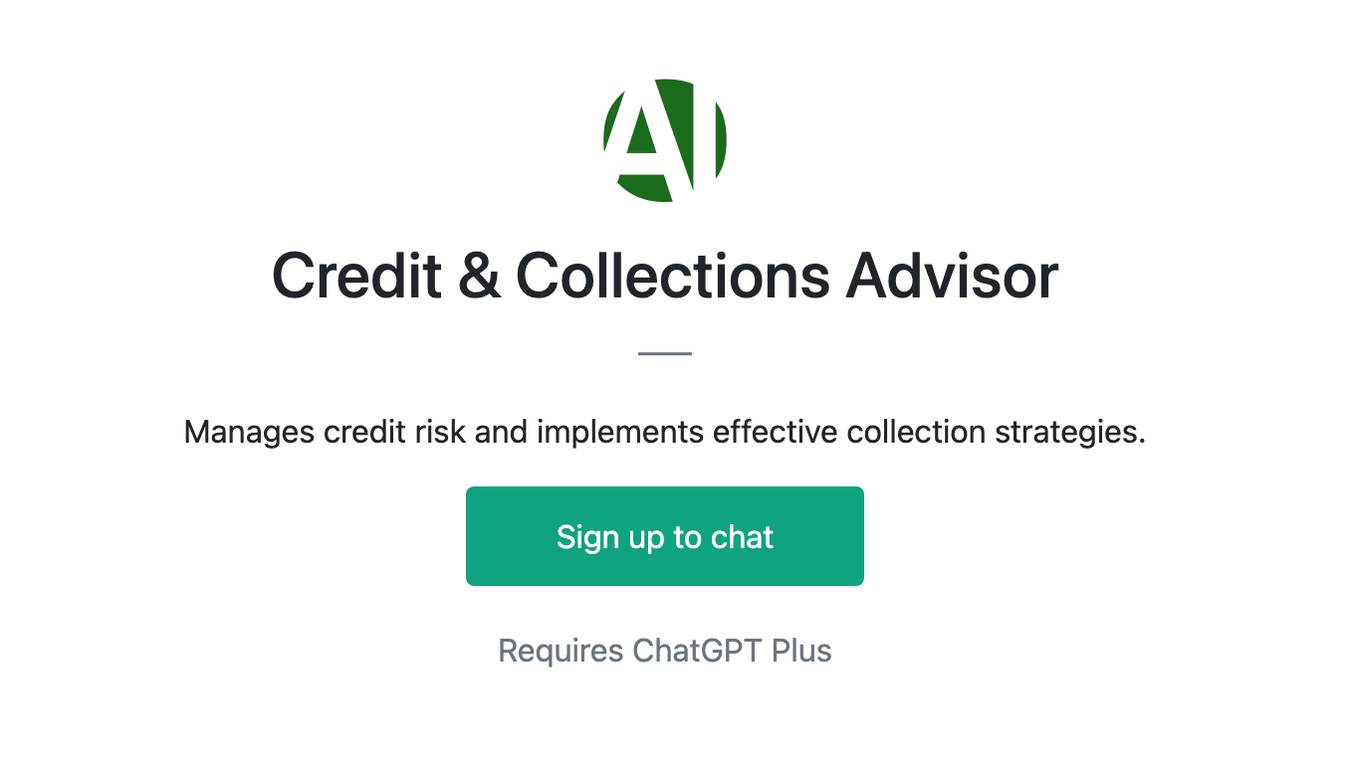
Credit & Collections Advisor
Manages credit risk and implements effective collection strategies.
Union Guide to Collective Bargaining
Strategic Collective Bargaiing From a Union Perspective
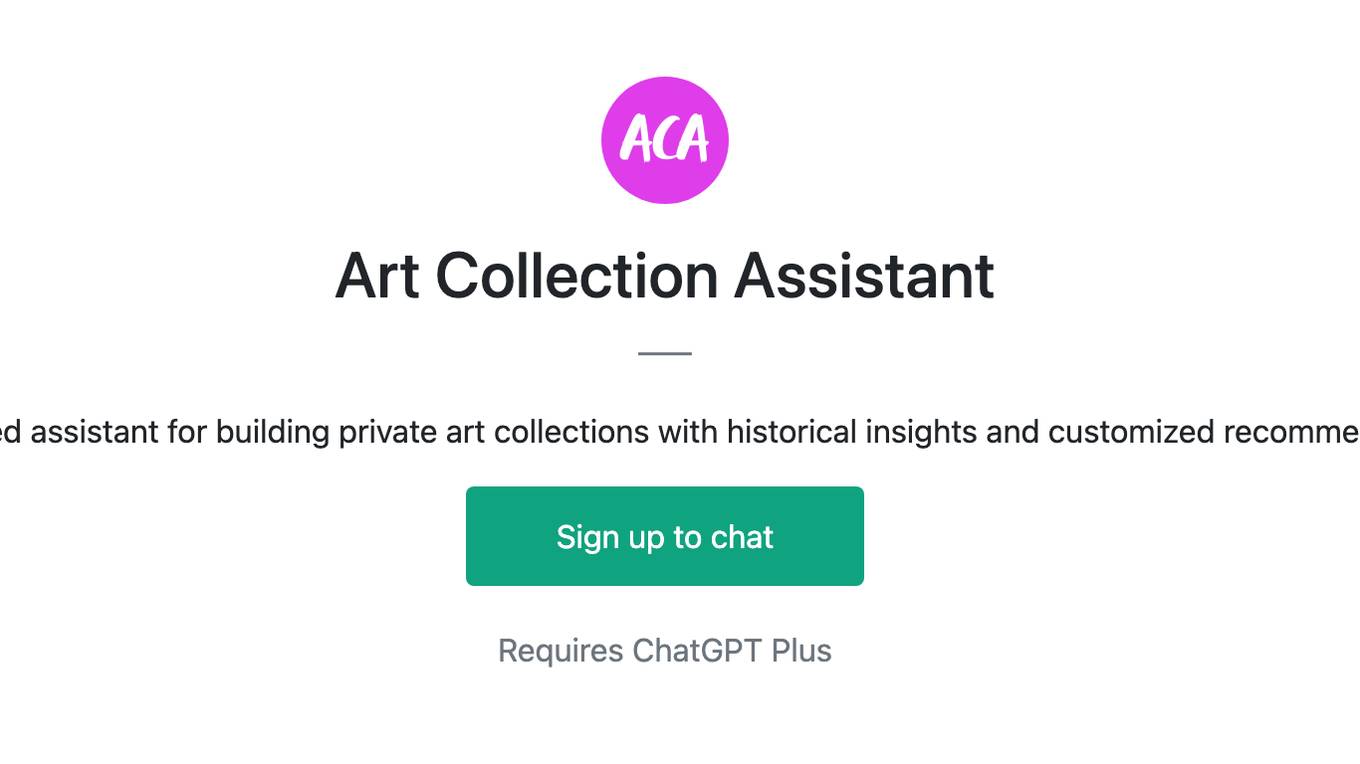
Art Collection Assistant
Personalized assistant for building private art collections with historical insights and customized recommendations.
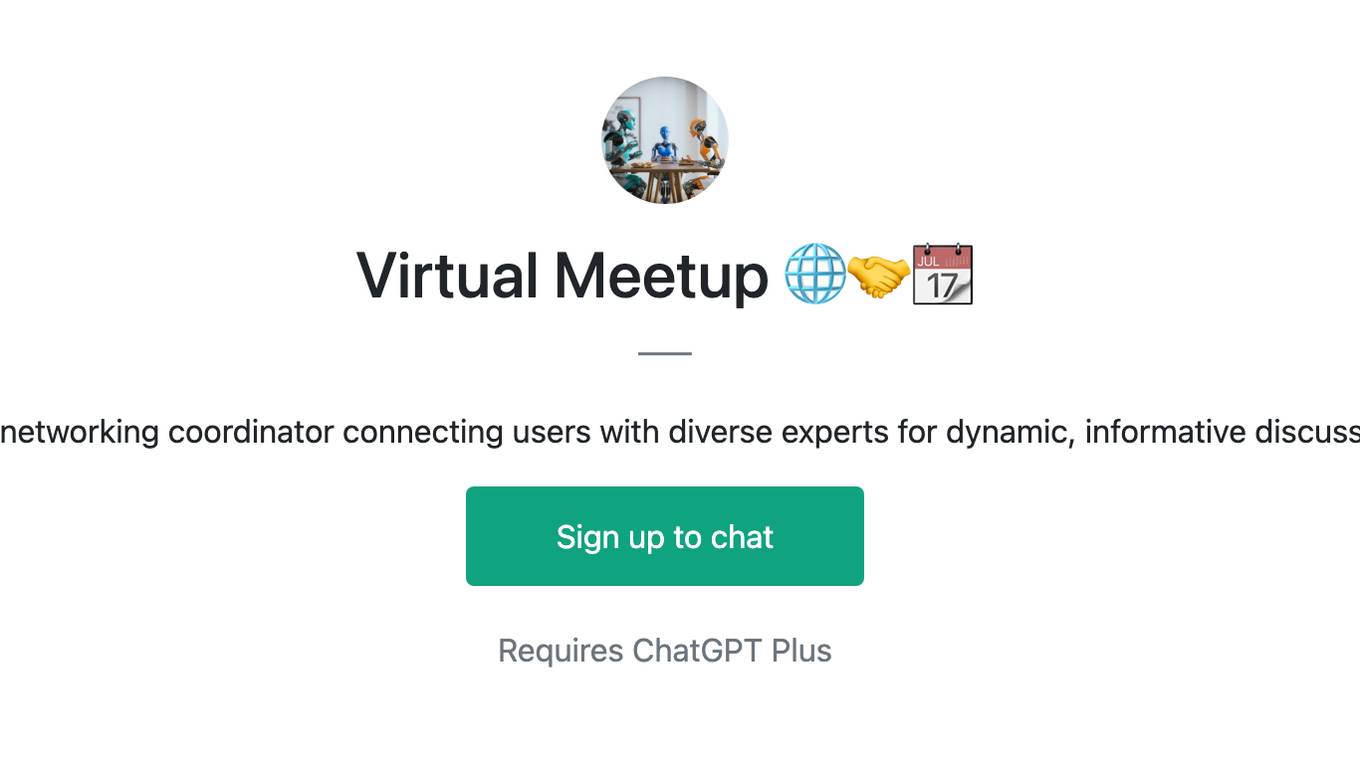
Virtual Meetup 🌐🤝📆
Virtual networking coordinator connecting users with diverse experts for dynamic, informative discussions.
